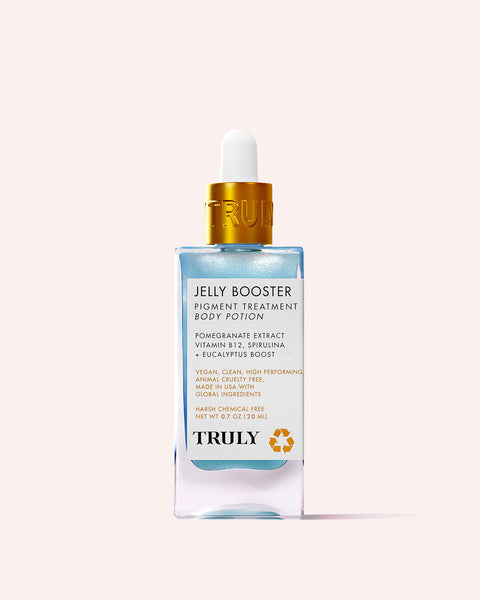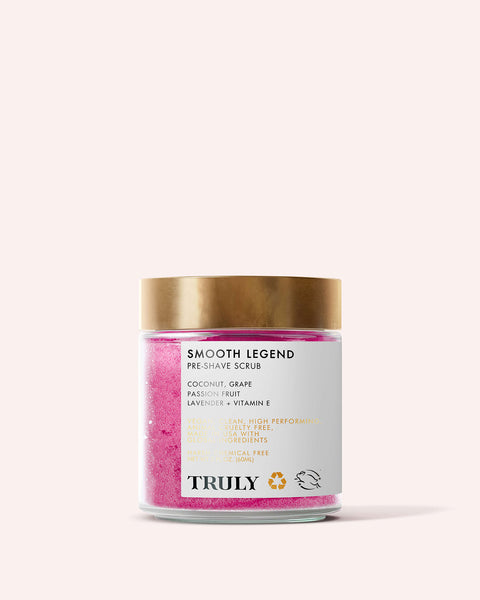Is Hyaluronic Acid Good for Acne?

Is hyaluronic acid good for acne or will it make it worse? Hyaluronic acid (HA) is a hugely popular skincare ingredient that you’ll find in serums, creams, masks, and many more products. It’s a powerful humectant that helps the skin retain moisture and bolsters the skin’s barrier.
While it’s known for being an incredible solution for dry, dehydrated skin, does hyaluronic acid help acne? Will using hyaluronic acid for acne treat or cause breakouts?
Here’s everything you should know about this powerhouse ingredient, and find out is hyaluronic acid good for acne?
What is Hyaluronic Acid?
Hyaluronic acid is a hydrating substance that your body makes naturally. It's found in places like your skin, joints, and eyes, and its main job is to keep things moisturized and slippery. In medicine, it's often used to help with joint problems like arthritis, where it acts like a cushion for the joints. In skincare, it’s used for the purpose of hydrating, plumping, and smoothing the skin.
Hyaluronic acid is a natural humectant, which means it can hold onto lots of water, making your skin look plump and smooth. Imagine it as a sponge that keeps your skin full of moisture, which can help reduce the appearance of wrinkles and fine lines. When you use skincare products with hyaluronic acid, it's like giving your skin a big drink of water, leaving it refreshed and rejuvenated.
Hyaluronic acid is a popular choice in serums, creams, and even face masks, all working to give you that healthy and hydrated glow.
Is Hyaluronic Acid Good for Acne?
Yes, hyaluronic acid can be helpful if you’re dealing with acne breakouts. Here’s why: Your skin tends to overproduce oil when it gets dry (usually from all those oil-stripping acne products). And excess oil ends up clogging your pores, which can lead to breakouts. By keeping your skin hydrated, you prevent the overproduction of sebum.
Using hyaluronic acid for acne is a great solution if you’ve got acne-prone skin. Thanks to its powerful hydrating properties, HA keeps your oil levels balanced and stops pores from becoming congested.
Are there any studies that show is hyaluronic acid good for acne? According to a study from 2017, hyaluronic acid can help seal in moisture and control excess oil production, meaning it can help to reduce acne.
Hydration is especially important for those using acne treatments or medications which work to dry up the skin in a bid to remove excess sebum and clear blemishes. While they can help, they often irritate and strip the skin, leading to pimples.
Will Hyaluronic Acid Clog Pores?

Hyaluronic acid is a non-comedogenic skincare ingredient, which means it will not clog the pores. Clogged pores are the main contributor to acne. So by using a non-comedogenic ingredient like hyaluronic acid, you can keep your skin hydrated without worrying about flareups.
Is hyaluronic acid good for acne? Yes, it helps to moisturize your skin without clogging pores and triggering breakouts. It also balances the skin’s oil levels to avoid congested pores.
When choosing hyaluronic acid products for acne, always check that you’re using non-clogging formulas. It’s best to avoid anything that will congest your pores and lead to further blemishes.
Should I Use Hyaluronic Acid if I Have Acne?
If you have acne, you may skip the moisturizing step because you’re worried those creams and lotions will clog your pores and worsen blemishes. This is a common misconception.
There is some truth to it. If you’re using rich, heavy creams with clogging ingredients then yes, you may make your acne worse. But skipping hydration is not the solution and can actually contribute to the formation of breakouts.
Is hyaluronic acid good for acne? Yes, as long as you choose a product that doesn’t contain clogging ingredients. Usually, hyaluronic acid is found in serums. Lightweight, non greasy serums that do not congest your skin.
Using hyaluronic acid on acne can definitely be beneficial in maintaining the skin’s moisture balance and barrier integrity. By doing this, it prevents excess sebum production and ultimately, zits.
Is Hyaluronic Acid Good for Oily and Acne-Prone Skin?
If you want to know is hyaluronic acid good for acne prone or oily skin, the answer is yes. Despite its name, hyaluronic acid is not an exfoliating acid like alpha hydroxy acids (AHAs) or beta hydroxy acids (BHAs). Instead, it's a humectant, which means it attracts and holds onto water molecules, providing hydration to the skin.
For oily and acne-prone skin, maintaining proper hydration is essential. When the skin is dehydrated, it can produce more oil to compensate, potentially exacerbating acne. Hyaluronic acid helps hydrate the skin without adding excess oil, making it suitable for oily and acne-prone skin types.
Benefits of Hyaluronic Acid for Acne-Prone Skin:
- Hydration: Hyaluronic acid hydrates the skin without clogging pores or adding oil, helping to balance oil production.
- Non-Comedogenic: Hyaluronic acid is generally considered non-comedogenic, meaning it is less likely to clog pores and cause breakouts.
- Lightweight Texture: Hyaluronic acid serums and moisturizers typically have a lightweight texture that doesn't feel heavy or greasy on the skin.
- Reduces Irritation: Acne-prone skin can often be sensitive and prone to irritation. Hyaluronic acid boasts soothing properties that can help alleviate redness and irritation associated with acne.
- Boosts Skin Barrier: A well-hydrated skin barrier is better equipped to defend against environmental stressors and bacteria, which can be particularly beneficial for acne-prone skin.
Can Hyaluronic Acid Worsen Acne?
Hyaluronic Acid will not cause or worsen acne. It’s a non-comedogenic ingredient that helps the skin retain moisture, balances sebum production, and ultimately prevents clogging.
There may be a couple of instances in which hyaluronic acid may trigger breakouts. First, if you’re using a formula that contains HA as well as comedogenic ingredients that clog pores. Second, if you have super sensitive skin and the products you’re using are too harsh.
If you use a pure hyaluronic acid serum for acne, you shouldn’t experience any of these side effects. You also won’t experience blemishes if you use a product that doesn’t contain pore clogging ingredients.
Best Hyaluronic Acid For Acne Products
Here’s a roundup of the best hyaluronic acid products for acne.
Cream Skin Face Moisturizer
SHOP NOW
A precious blend of hyaluronic acid and sea kelp, this lightweight face cream brings instant moisture to skin while plumping out fine lines and balancing oil production. Rich in antioxidants, it helps your skin to recover and heal while protecting against external aggressors.
Glazed Donut After Shave Glow Cream
SHOP NOW
A luxe, lightweight formula that melts into skin for intense hydration and relief. Besides leaving skin smooth and preventing acne, it imparts an all over glow that lasts all day–with a delicious vanilla glaze scent.
Mighty Tighty Body Sculpting Serum
SHOP NOW
An instant body toner with hydrating and acne-fighting benefits. Is hyaluronic acid good for acne? You’ll soon find out with a few uses of Mighty Tighty Serum. In addition to hyaluronic acid, it also contains vanilla–an antibacterial ingredient that combats acne.
Dulce De Leches Serum
SHOP NOW
Besides smelling delicious, this dessert-inspired serum tones, tightens, and alleviates acne with its blend of hyaluronic acid, retinol, and guarana. You’ll feel oh so decadent with one single use of this sumptuous serum.
How Long Does it Take for Hyaluronic Acid to Work on Acne?
Now you have the answer to is hyaluronic acid good for acne you’re no doubt wondering when you’ll start seeing your skin clearing up. The results of using hyaluronic acid for acne depends on the individual. They can vary from person to person.
Generally speaking, you should notice an improvement within the first two weeks of using hyaluronic acid acne products. It’s important to stay patient and consistent. You won’t see results immediately, but you should definitely notice an improvement within a couple of weeks. From there, your skin should only continue to improve as your oil levels balance and pores decongest.
Is Hyaluronic Acid Good for Acne on Body?
Yes, hyaluronic acid can also be helpful for body acne. Again, it helps to balance skin’s oil production, preventing clogging and thus breakouts. In addition to its effects on acne, hyaluronic acid can keep your skin fresh, smooth, and plump.
So if you have dry or rough skin, hyaluronic acid can improve skin texture too. By using it in your daily skincare routine, you should see a visible improvement in a couple of weeks or more.
How to Use Hyaluronic Acid for Acne
Start by choosing the best hyaluronic acid for acne. It could be a serum, cream, or mask. Either way, be sure to choose a high quality formula that’s clean and won’t clog your pores.
Next, make sure you stay consistent. If you have sensitive skin, start by slowly introducing a HA product into your regimen. For those with dry, oily, or acne-prone skin, you can start using hyaluronic acid on a daily basis.
Is hyaluronic acid good for acne? It can definitely benefit acne-prone skin thanks to its ability to hydrate, balance sebum, and soothe irritation. What’s more, it helps to strengthen the skin’s barrier, which can prevent blemishes.




























































